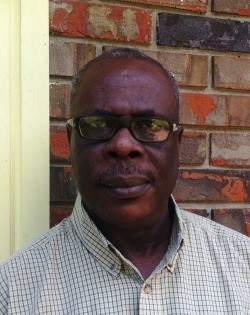Retired Folk Studies and Anthropology Faculty

- Retired faculty, Folk Studies
Broadly, I am interested in the folklore of forced historical population movements, especially those resulting from the encroaching Sahara, the depletion of farmlands, wars in Africa, and the Atlantic slave trade. I am presently working on the transatlantic slave journeys of the Igbo people of Nigeria together with the issues of their forced relocations and settlement patterns, survival, and the establishment of Igbo community traditions on both sides of the Atlantic. Since 1999, I have been researching and writing about the material culture, verbal lore, and historical narratives of Igbo slave journeys from Nigeria to Virginia and through the Underground Railroad to freedom in the United States, as well as the reconnection of Africans and African Americans of Igbo descent long separated by the tragic events of Atlantic slave trade. Since 2006, I have been using relevant lessons from my folklore studies to help shape the preparedness of Igbo immigrants in America to reestablish their ethnic community tradition in the United States. I organize and facilitate reconnection events at the Igbo Farm Village in Staunton, Virginia. The Igbo Farm Village, an outdoor museum exhibit in Staunton provides a context very close to the Igbo cultural environment for experiencing and learning Igbo culture in America. I use the exhibit to run summer and weekend cultural immersion classes that reacquaint parents with their Igbo cultural heritage so that they can pass same on to their American born children. Although the cultural immersion workshops at the Igbo Farm Village are Igbo-centered, I also draw from my 20 years of experience in teaching cultural diversity in the United States to anchor my presentations within the greater American multiethnic and multicultural heritage. Because the Igbo Farm Village is in the midst of English, Irish, and German farms that showcase the contributions of Old World cultures to the development of the American frontier culture, there could not be a better location in the United States for achieving my goal.
“Before the Middle Passage: Igbo Slave Journeys to Old Calabar and Bonny” Repercussions of the Atlantic Slave Trade: The Interior of the Bight of Biafra and the African Diaspora, edited by Carolyn Brown and Paul Lovejoy. Trenton, New Jersey: Africa World Press (2011) 57-69.
Amamihe: The Basis of Igbo Culture and Character formation.Goldline and Jacobs Publishers, NJ, Canada, and Owerri, 2010.
ENYI BIAFRA: Regimental Drill, Duty Songs, and Cadences from Biafra. Goldline and Jacobs Publishers, NJ and Owerri, 2009.
“The Atlantic Slave Trade, Colonialism, Gender, and Class Transformations in the Bight of Biafra Hinterland” in Olaudah Equano and the World. Edited by Chima Korieh. Africa World Press, (2009), pp. 203-217.
“Civil Society Practices among the Igbo People of Nigeria,” in Comparative Perspective of Civil Society, edited by Robert Dibie. Lexington Books 2008, pp. 209-223
Oral tradition and the material culture of the Atlantic slave trade as historical source: evidence from the Bight of Biafra hinterland. In The Aftermath of Slavery: Transitions and Transformations in Southeastern Nigeria. Edited by Chima J. Korieh and Femi J. Kolapo. Trenton, NJ: African World Press, Inc. 2007, pp. 136-157.
237 Ivan Wilson Fine Arts Center | Potter College of Arts and Letters | Western Kentucky University | 1906 College Heights Blvd. #61029 | Bowling Green, KY 42101-1029 | Email: fsa@wku.edu | Phone: (270) 745-6549 | Fax: (270) 745-6889
Some of the links on this page may require additional software to view.

